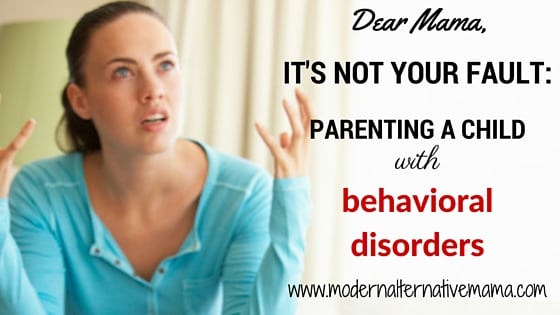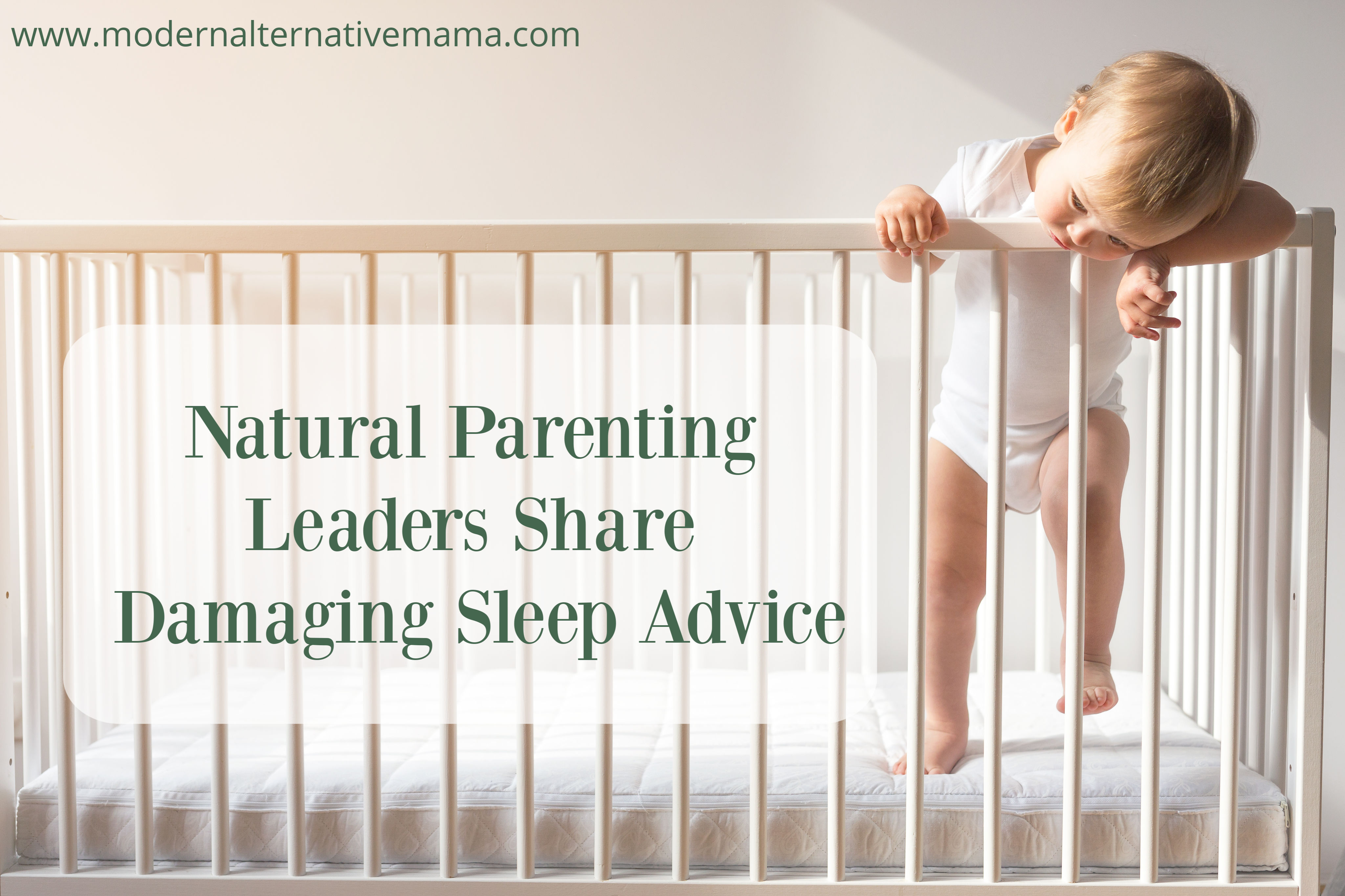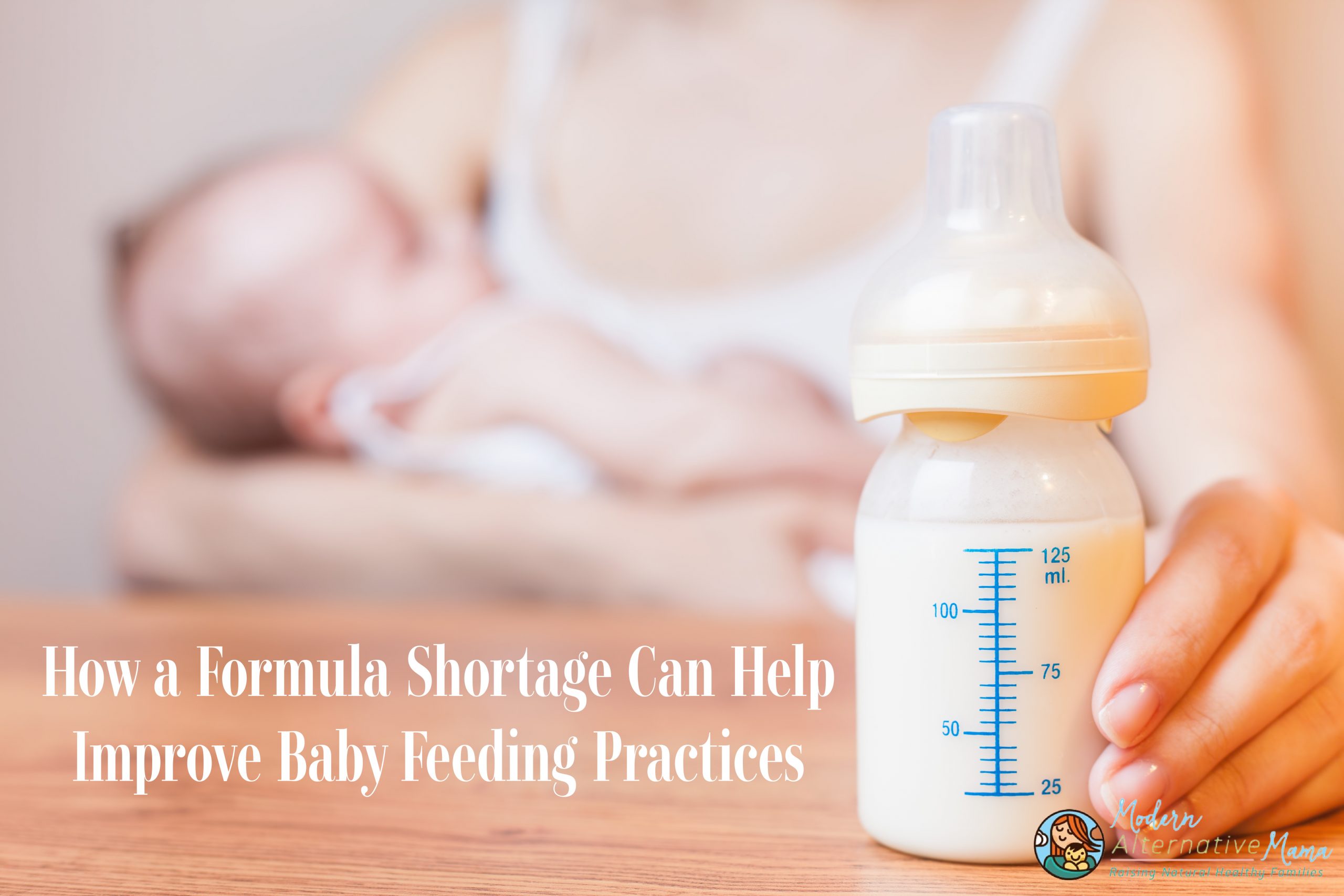Drop the guilt! If your child has behavioral disorders, things can get better. Use these peaceful parenting techniques to bring calm to your child and home.
By Jaclyn, Contributing Writer
Being a mama is a tough gig. It’s the most rewarding, joyful, inspired undertaking I’ve ever tackled, but it’s hard. It’s through the really hard moments, though, that I have grown and stretched, not just as a mom, but as a person.
Being a mama has made me a better person.
Being a mama is hard, but being a mama to a child with behavioral disorders can be intensely difficult. Thankfully, just as motherhood has made me a better person, being a mama to a child with behavioral disorders has made me more compassionate, more patient, more wise, more dedicated, and more brave than I ever imagined I could be.
All Signs Point to… Behavioral Disorders
If you have a child with (a) behavioral disorder/s, you know what I’m talking about. Or maybe you don’t even realize your child has a behavioral disorder. It took me a long time to figure it out.
When my son began walking, he became hyperactive, and by the time he was two, we had nicknamed him “the tornado.” It would be easy to laugh that off as typical “boy behavior,” but things got worse as he got older.
I thought if I just disciplined enough or kept him busy enough, his behavior would improve. That wasn’t the case, and when he was three, his hyperactivity and impulsivity had become severe enough that he was endangering himself and his little brother. We sought help from a children’s therapist, who advised us to seek medication. (We chose to take the natural route and have been healing him with nutrition ever since. Read about the dangers of psychiatric medication use in children here.)
Within the next year, my son developed tics, aggression, and episodes of anger and defiance. I became secluded as his behaviors became unbearable around other children, whom he would hurt in outbursts of anger.
Life was tough and I blamed myself.
I was becoming more and more lonely in my struggle to figure out how to parent him.
Dear Mama: It’s Not Your Fault
We suffered through these behaviors for years before finally putting the pieces together that he had symptoms of oppositional defiant disorder, and a condition called PANDAS (Pediatric Autoimmune Neuropsychiatric Disorders Associated with Streptococcal Infections), which we later realized were likely triggered by an illness he had around the time the new behavioral symptoms started.
By the time he was six, I had put many pieces together and concluded that something was very wrong on a deeper level, something that no amount of discipline could fix, and the strong discipline I had been attempting for most of his life had been futile.
It wasn’t my fault. His behavior was not due to lack of discipline, and disciplining him harshly was not helping. If you have a child struggling with similar behaviors, I want to tell you: it’s not your fault, either.

How Gentle Parenting Helped
Today, my son is doing better than ever, thanks, in large part, to diet and biomedical interventions (herbal medications and vitamins). You can read here about the five ingredients to avoid for children with behavioral disorders (this is where we started).
But it wasn’t just the food.
I actually did learn to parent him better, and I don’t mean discipline. I learned to reach the heart of my son and find ways to connect with him and relate to him.
Early in his life, I thought if I spanked him enough, he would have good behavior. As he grew older and his behavior became increasingly difficult, spanking him actually made things worse. Much worse. He would become so angry that he would scream, throw things, and even retaliate sometimes.
We had to find a new discipline method. Timeouts didn’t work. Taking away toys and privileges didn’t work. Spanking clearly didn’t work.
When you have a child constantly testing boundaries, and he has totally worn you down, you have to get creative, and you have to get serious about reaching your child. After all, I had worried that we would lose him altogether and never be able to have a healthy relationship with him.
Here’s how I did that:
#1: I Prayed
I prayed for my son; I prayed with my son; and I taught my son to pray for himself. We learned about spiritual warfare and how we can use our words as powerful weapons against attacks of anger and aggression. These days, he can pray for himself and the anger and defiance will lift right off of him.
#2: I Talked to My Son
Once he gets through an episode, I ask him what was going on at the time he became angry so I can help him prevent outbursts in the future. By talking through his triggers, he stays motivated to avoid triggers like foods and situations that affect him poorly.
Additionally, we talk about the kinds of behaviors we want to show in our house. He agrees that he doesn’t like to be angry or have poor self-control, so we place a high importance on showing fruits of the spirit (peace, love, joy, kindness, faithfulness, patience, goodness, gentleness, and self-control [Galatians 5:22-23]).
#3: I Set Boundaries
While I try not to be too rigid (indeed, a parent of a child with behavioral disorders must learn to roll with the punches!), I do have to set firm boundaries. Often times, a child with behavioral disorders will push the envelope and try to get away with anything they can.
We do still have to have consequences for unacceptable behaviors, such as being disrespectful, hurting others, or disobedience. Sometimes that means he spends time alone or loses a privilege, but more often than not, a firm redirection by simply reminding him that a particular behavior is unacceptable is enough.
#4: I Changed My Behavior
Perhaps the most important change of all was in how I conducted my own behavior. I have been on a journey over the past year to become more peaceful myself so I can be a peaceful parent.
If my son is angry, and I get angry, then I discipline him in anger, we just perpetuate the cycle in our home. Before long, everyone is angry and joy and laughter are nowhere to be found. That is not the tone I want to set in my home.
As mamas, we are the thermometer for the mood of our home. If we run too hot (angry), everyone around us stays hot. If we run too cold (lacking love), everyone around us will be cold. Use your own behavior to keep the tone of your home warm and loving.
I do this by playing praise music, diffusing relaxing essential oils, and trying to speak to my children the way I want to be spoken to: kindly and not in harsh tones. Honestly? I fail at some point every day. But things are getting better.
If you are struggling with a child with behavioral disorders, and you aren’t sure where to start for things to get better, get my free e-book 10 Ways to Improve Your Child’s Behavior NOW by clicking here.
Peaceful Parenting is the Right Fit for Children with Behavioral Disorders
What peaceful parenting looks like will be different in each family. I would dare to say it is easier to peacefully parent neurotypical children than children with behavioral disorders.
However, it is even more important to peacefully parent children with behavioral disorders so that everyone can stay calm and happy, even in stressful moments!
It isn’t always easy to take control of your own emotions in heated moments, but it is worth it as you begin to change the climate of your home and a sense of peace begins to permeate your life, rather than letting anger, chaos, and despair take over. Your child’s difficult behaviors aren’t your fault, but you can help them get better.
Do you have a child with a behavioral disorder? What peaceful parenting techniques have you found help your child?
SaveSave







Can I just say THANK YOU! My daughter has behavior disorders. Aside from her ADHD I truly believe she may be bi polar and we are now trying to heal that with Doterra Essential Oils. I’m praying that it works because I do not want her on a harsh medication for bi polar. We have tried changing eating habits, every type of discipline possible yet the outbursts, sneaking/conniving, stealing, just being mean continues. It is SO SO hard. I have very close and dear friends who pray for us as well but they don’t know what it’s like. It’s not just a child “being bad” it is SO much more and SO much more exhausting. especially when I’m due with her brother in less than a month. She is almost 7 but so so excited for her brother and I’m really praying God uses him coming to work on her heart and wanting to behave and not yell to not upset her brother etc. God has a reason for this. I know he does but it’s so hard to see when you’re feeling so down. It’s nice to know I’m not alone. She also has severe eczema and has gotten Streptococcal Infections several times. It is usually on her arms/wrists and she’s gotten up to 3 times in less than two months before. It’s hard too because it makes her feel outcasted. 🙁 I pray with her nightly but will be encouraging her in praying for herself through her anger like you mentioned. Thank you so much for letting me know I am not alone.
[…] is hard. I’m pretty sure I’ve said that before, no less than a thousand times. Because it’s true. All kids test boundaries and want to have […]
I cannot thank you enough for this article! Recently I took my then 9 year old to the farm store and he had a total breakdown. He was excited and overwhelmed to see the chickens and just couldn’t contain himself. As I tried to talk him down, a lady near me whispered loudly “THAT’S what today’s parents get for not spanking”. This threw an already difficult situation over the edge for my son. I realize we must be difficult for other shoppers, but in all fairness he was in a corner (his choice) by bags of dog food and not where he could actually bother anyone that didn’t choose to be in that area. By the time we left, I was exhausted and exasperated, he was beyond overdone, and the whole event left me feeling defeated. Because he looks normal, people often don’t realize he’s not being bratty, or deliberately mean, he just can’t cope the same way most do. I have not been out with him since the incident, as I felt so alone and unable to face the challenge. I cannot tell you how the timing of this article has helped my outlook, just to know I am not alone. Sometimes, parenting a child gently, who to all outward appearances just seems disrespectful and mean, can be the hardest, most soul wrenching battle around. Thank you for confirming what I knew all along, that we are not alone, that there IS hope, and that our parenting decisions have worked for other families. I owe you one for this boost, and believe we may go to the feed store today!